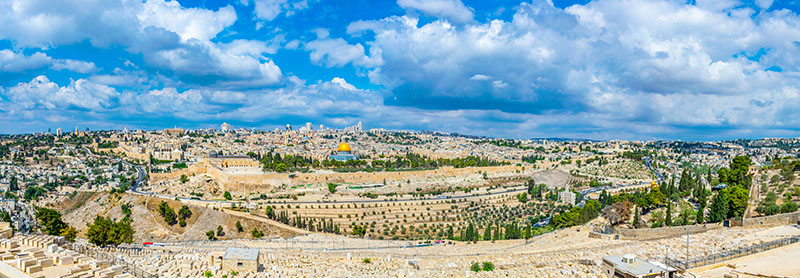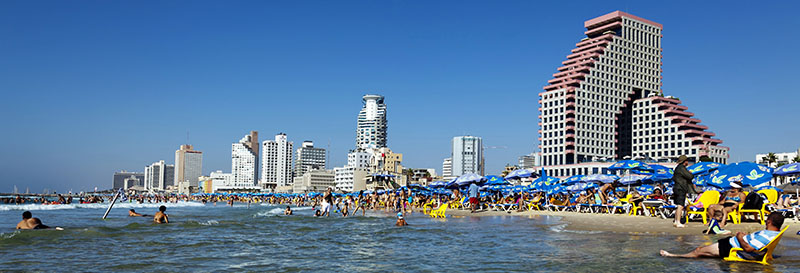Israel: A Premier Destination for Medical Tourism
Israel, a small yet vibrant country in the Middle East, is renowned for its advanced medical facilities, cutting-edge technology, innovative treatments and top-tier healthcare professionals.
According to data from the Israeli Ministry of Tourism, between 2010 and 2020 (prior to the COVID-19 pandemic), approximately 30,000 medical tourists arrived each year. The Medical Tourism Law, effective from January 29, 2019, regulates the medical tourism field in Israel. Every medical facilitator is registered with the Israeli Ministry of Health to ensure quality service and protect the rights of medical tourists.
Here's everything you need to know about why Israel is an excellent choice for your medical tourism needs.
The Startup Nation
Israel is often called the "Startup Nation" due to its high number of startups per capita. This innovative spirit is particularly evident in the medical field, where Israel leads the world in medical technology and research. From state-of-the-art medical devices to groundbreaking treatments, Israel offers some of the most advanced healthcare solutions available.
Weather and Climate
Israel enjoys a Mediterranean climate, making it an ideal location for recovery and relaxation. Here's a breakdown of the climate and average temperatures throughout the seasons:
- Spring (March to May): Mild and pleasant, with temperatures ranging from 15°C to 25°C (59°F to 77°F). This season is marked by blooming flowers and green landscapes.
- Summer (June to August): Hot and dry, especially in inland areas. Coastal cities like Tel Aviv experience temperatures between 25°C and 30°C (77°F to 86°F), while inland areas like Jerusalem range from 20°C to 35°C (68°F to 95°F).
- Autumn (September to November): Warm and comfortable, with temperatures gradually cooling from 20°C to 30°C (68°F to 86°F) in September to 15°C to 25°C (59°F to 77°F) by November.
- Winter (December to February): Mild and rainy, particularly in the northern and central regions. Coastal areas see temperatures between 10°C and 20°C (50°F to 68°F), while Jerusalem can range from 5°C to 15°C (41°F to 59°F). Snow is rare but possible in higher elevations like Jerusalem and the Golan Heights.
Spoken Languages in Israel
Hebrew is the official language. English is commonly spoken and understood, especially by medical professionals and staff, as well as in the streets, due to the high standard of English education in the country. Additionally, Arabic is spoken by the Arab population, and Russian and French are spoken by significant immigrant communities.
Currency & Payment Methods
The official currency is the Israeli New Shekel (ILS). Major credit cards are widely accepted, and ATMs are plentiful, allowing easy access to cash. It's always a good idea to have some local currency on hand for convenience.
Accepted Payment Methods:
- Credit and Debit Cards: Major credit cards such as Visa, MasterCard, and others are widely accepted in medical facilities.
- Cash: Carrying some cash (Israeli Shekels) is advisable for smaller expenses.
- ATMs: ATMs are readily available throughout the country and accept international cards.
- Mobile Payments: Apple Pay and Google Wallet are increasingly popular and accepted in many urban areas.
Accepted Methods of Payment for Medical Services for Medical Tourists in Israel
Hospitals in Israel accept payments via international bank transfers, credit cards, or cash in shekels, dollars, or euros. Please note that the maximum cash payment accepted by hospitals is 40,000 Shekels. Tourists can bring up to 50,000 Shekels into the country without needing to declare it. (Check official site for updates)

Jerusalem
Important Note on Operating Hours for Businesses, Shopping, and Transport
In Israel, public transportation, as well as many stores and shops, do not operate from Friday evening to Saturday evening due to the observance of the Sabbath. During this time, it is advisable to plan your travel and shopping needs accordingly. Essential services, including some medical facilities, remain operational.
Business hours in Israel typically run from Sunday to Thursday, reflecting the country's unique weekly schedule. Medical facilities generally operate from 8:00 AM to 5:00 PM. On Fridays, many businesses close early for the Sabbath, which lasts until Saturday night.
Public Transportation
Israel boasts an extensive public transportation system. Please note that public transportation does not operate from Friday afternoon to Saturday evening due to the Sabbath.
- Buses: The primary mode of public transportation in cities and between towns.
- Trains: Israel Railways offers comfortable and efficient train services connecting major cities, including Tel Aviv, Haifa, and Jerusalem.
- Light Rail: Jerusalem and Tel Aviv have light rail systems that provide convenient urban transport.
- Taxis: Readily available and can be hailed on the street, booked by phone, or via apps like Gett or Yango.

Tel-Aviv
Tourism in Israel
For many medical tourists, Israel holds additional significance as the home of some of the holiest sites for Judaism, Christianity, and Islam. The city of Jerusalem, with landmarks such as the Western Wall, the Church of the Holy Sepulchre, and the Al-Aqsa Mosque, provides spiritual solace and inspiration, adding a unique dimension to the healing journey.
Plan Your Medical Trip
Choosing Israel for your medical needs means accessing top-tier healthcare in a country renowned for its medical advancements. From innovative treatments to world-class facilities, Israel offers a unique blend of expertise and care. We are here to assist you every step of the way, ensuring your medical journey to Israel is as smooth and successful as possible. Welcome to Israel – where medical excellence meets compassionate care.
Sources: Israeli Ministry of Health










